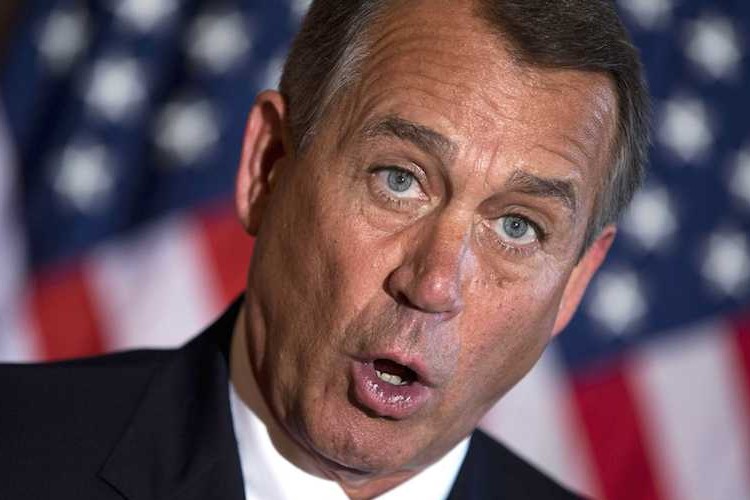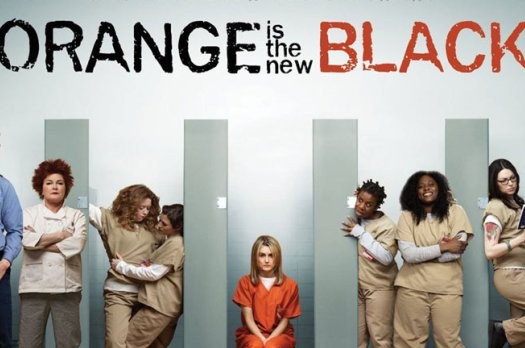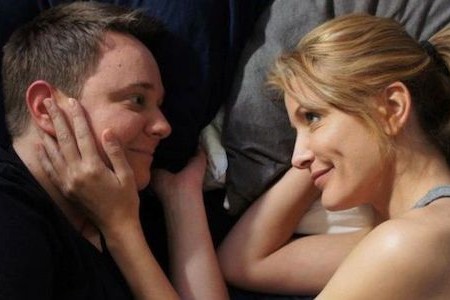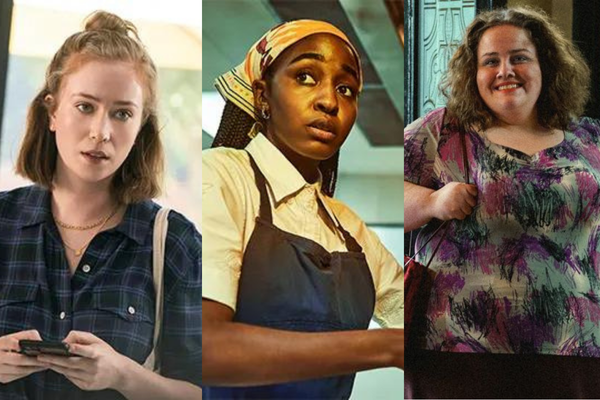
Top List Tuesday: John Boehner is the New Black
June 3, 2014
Season Two of ‘Orange is the New Black’ is Here
June 4, 2014A review of Michelle Ehlen’s new film
Heterosexual Jill, a film by Michelle Ehlen, opens with main character Jill in a support group for “ex-lesbians,” called Better Day Tomorrow. The group leader says fantastic things like, “attraction is a beast that needs to be tamed, not taunted” and that “any man we can catch is worth catching.” Ehlen, who also stars in the film as Jill’s ex, Jamie, pokes fun at this group of sexually repressed women, who are deeply in denial and attempting to comfort Jill by saying, “we are all rooting for you to be heterosexual, Jill!”
Lines blur in a few ways in this film, which might have been intentional on Ehlen’s part. Being queer can be disorienting (pun intended), especially when we first discover our queerness. Various characters are brought in to offer differently- angled perspectives on gender, sexuality, stereotypes, and what they mean or don’t mean about a person’s character. Lola, a bisexual woman, and David, a gay man and Jamie’s friend and co-worker, fight for the attention of one of their co-workers, who is a more effeminate man, all the while trying to prove to one another that he is either straight or gay, and therefore eligible for one of them.
Based on the title, we know Jill has an identity crisis, but surprisingly Jamie has one, too. They initially begin dating while Jamie (who is an actress) is cast in a male role leading Jill to believe she’s a man. Jill claims that she fell in love with the male Jamie and that she was tricked. After four years of attending her ex- lesbian support group, Jill decides to see Jamie again thinking she could extinguish her desire for Jamie once and for all. She tells Jamie, “I think we should date so that I know I was only attracted to you as a man and not a woman.”
In the first part of the film, it’s clear that Jamie believes Jill is gay—that she’s just humoring her with her quest to become straight, but some serious conversations are also had. Jamie asks Jill, ”what does being straight have to do with being happy?” Jill spits out a list of what’s been going on inside her head: “being accepted. . .fitting in. . .not having to be ashamed. . .having to hide. . .not having your friends and family desert you for being some kind of freak.”
Jamie tempers the seriousness with sarcasm—there are plenty of funny moments including the imperative Hillary Clinton joke, some classic lesbian stereotype jokes, a messy drunken night scene to make you cringe, and moments when you’ll realize Jill and Jamie share an emotional connection on some level, whatever it may be.
As I mentioned, I wasn’t expecting Jamie’s identity crisis. Her attitude about her own identity and sexuality seemingly inexplicably changes. She accidentally walks in on David in the bathroom and sees his “male anatomy” and can’t seem to get it out of her head. It goes so far as to interfere with a date she’s on with another girl. She says to David, “if you ever catch me with a man you gotta do something. . .if I ever get too drunk and start macking on some guy.”
It’s possible Ehlen wanted to put it out there that even butch dykes’ sexuality can be fluid and that it’s never too late for a little introspection—I’m not really sure. Maybe I’m still bitter from The Kids Are Alright and Blue is the Warmest Color to handle another gay woman wondering if she might actually be attracted to men.
I know you’re just wondering whether or not Jill is gay, but obviously you have see the film for that!!





